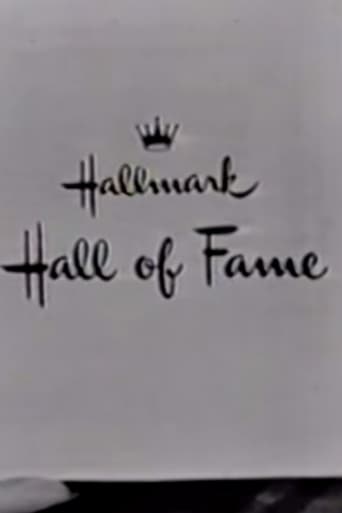mpgmpg123
This was such a great series in the 50s and 60s and then again in the mid 80s to mid 90s. In particular several actresses really thrived in this series. One in more recent years was Glenn Close in the Sarah Plain and Tall movies, the first two of which were just great. Her current series Damages is excellent, but i prefer Sarah Plain and Tall. Also Greer Garson got to play the Bette Davis role in the Little Foxes and show her less Mrs. Miniver side. She was great. Also she was excellent in Captain Brassbound's Conversion, a great role by a great actress. Both can be seen at the museum of TV and radio in NY. But the one with the longest run in this series was Julie Harris. I have not seen her performance in the Good Fairy, but her performances in The Lark (as Joan of Arc), Pygmalion, Anastasia, Johnny Belinda, Nora in A Doll's House (a performance referred to in Betty Friedan's The Feminine Mystique) , The Holy Terror (as Florence Nightingale), Victoria Regina as Queen Victoria, and most especially her beautiful work in Little Moon of Alban, are all wonderful performances. No TV actress ever has been able to have an 11 year history of such different, yet all great, roles and performances. We won't see the likes of these again.
Albert Sanchez Moreno
I have been watching this anthology series since the early 1960's. It was once one of the greatest television programs ever produced, a guarantee of quality television every single time.The earlier version of the series, which lasted from 1951 to approximately the early 1970's, presented live, and later videotaped, productions of both high-quality recent plays as well as 90-minute versions of Shakespeare's works and other stage classics. They featured renowned stage and screen actors who, at that time, made extremely rare television appearances, so there was always a special air of excitement about the whole thing. The plays were always performed on what would now be considered "cheesy" sets--obviously studio-built, sometimes deliberately artificial, but still quite good-looking. And of course, there was the acting - every single program showcased at least one memorable performance, some so memorable that they are still talked about (Julie Harris' Queen Victoria in "Victoria Regina", for instance).With the change in tastes and in method of presentation, and an increase in the budget, the "Hallmark Hall of Fame" began filming their programs on location, beginning in the early 1970's. Only one of their earlier presentations - the 1960 "Macbeth" - had ever been filmed on location, in Scotland, rather than presented live or on videotape in a studio.Some of the newer episodes, such as the television remakes of "The Small Miracle" and "Little Lord Fauntleroy", and Glenn Close's Emmy-winning "Sarah, Plain and Tall", were still quite good, though not on the level of the earlier ones. But over the last few years, this series has deteriorated into a collection of mostly totally forgettable original dramas that don't even begin to approach the level of the glory days of this show. It has become so bad that I have stopped watching it altogether, and the fact that Hallmark is willing to let this once great program go to pot is a sad commentary on commercially-minded television executives. Thank God that Hallmark has now turned its attention to the excellent series of literary classics which show up from time to time on Turner Network Television. THOSE are programs which remind us what the "Hallmark Hall of Fame" used to be.About fifteen years ago, there was a series that aired on local late-night television with the title "George Schaefer Showcase Theatre". Imagine my shock when I discovered that this series, relegated to syndicated TV limbo, consisted of some of the greatest presentations that the "Hallmark Hall of Fame" has ever aired! That any local TV station would dump these programs in a late-night time slot and pass them off as forgotten old movies is the ultimate indignity. Someone should revive and remaster those classic episodes and show them regularly, in prime time, over and over, as a reminder of our television past. Modern day TV executives could use such a reminder.
